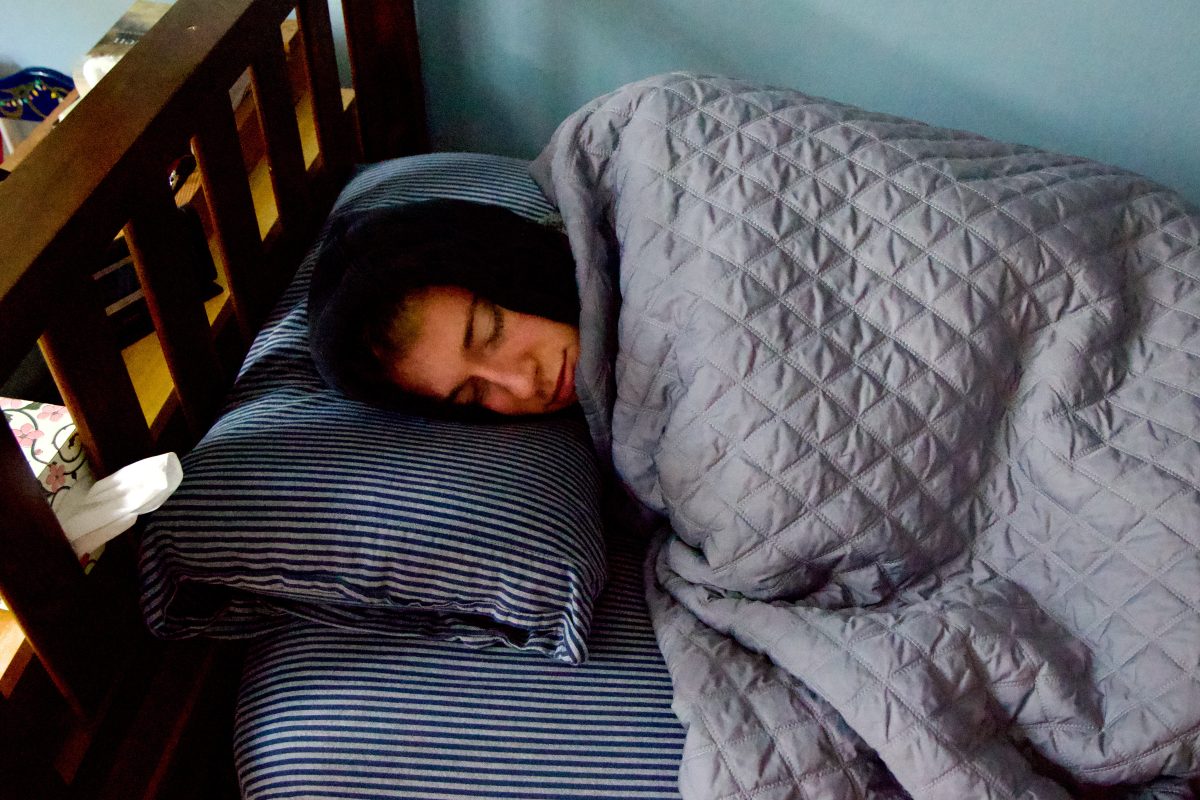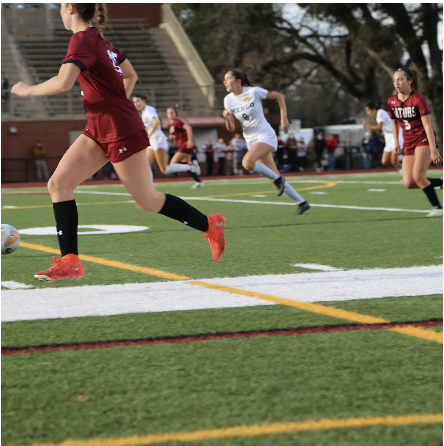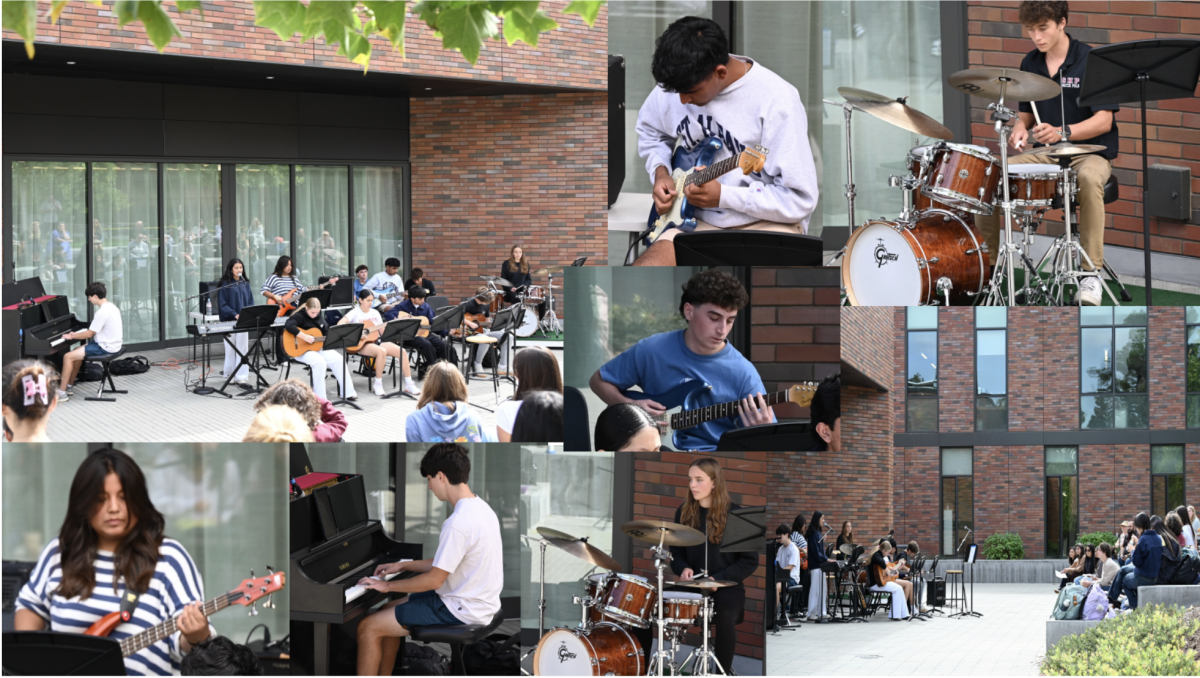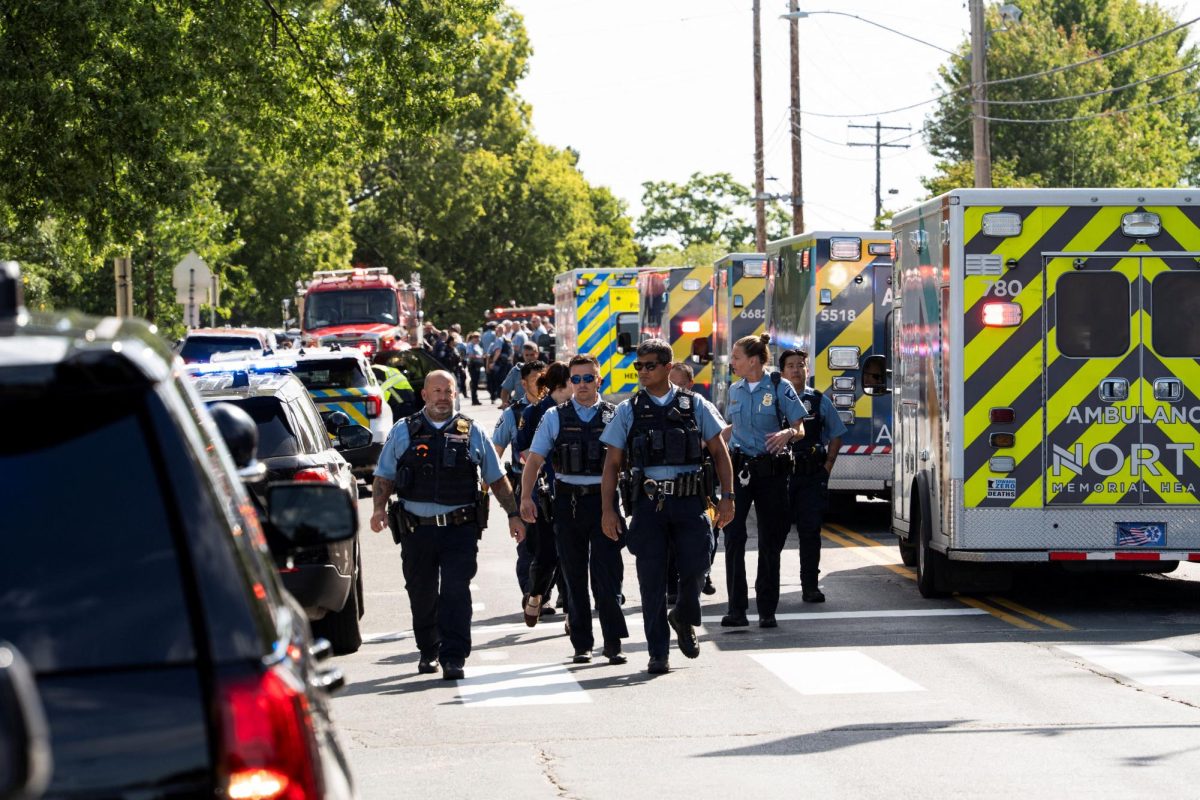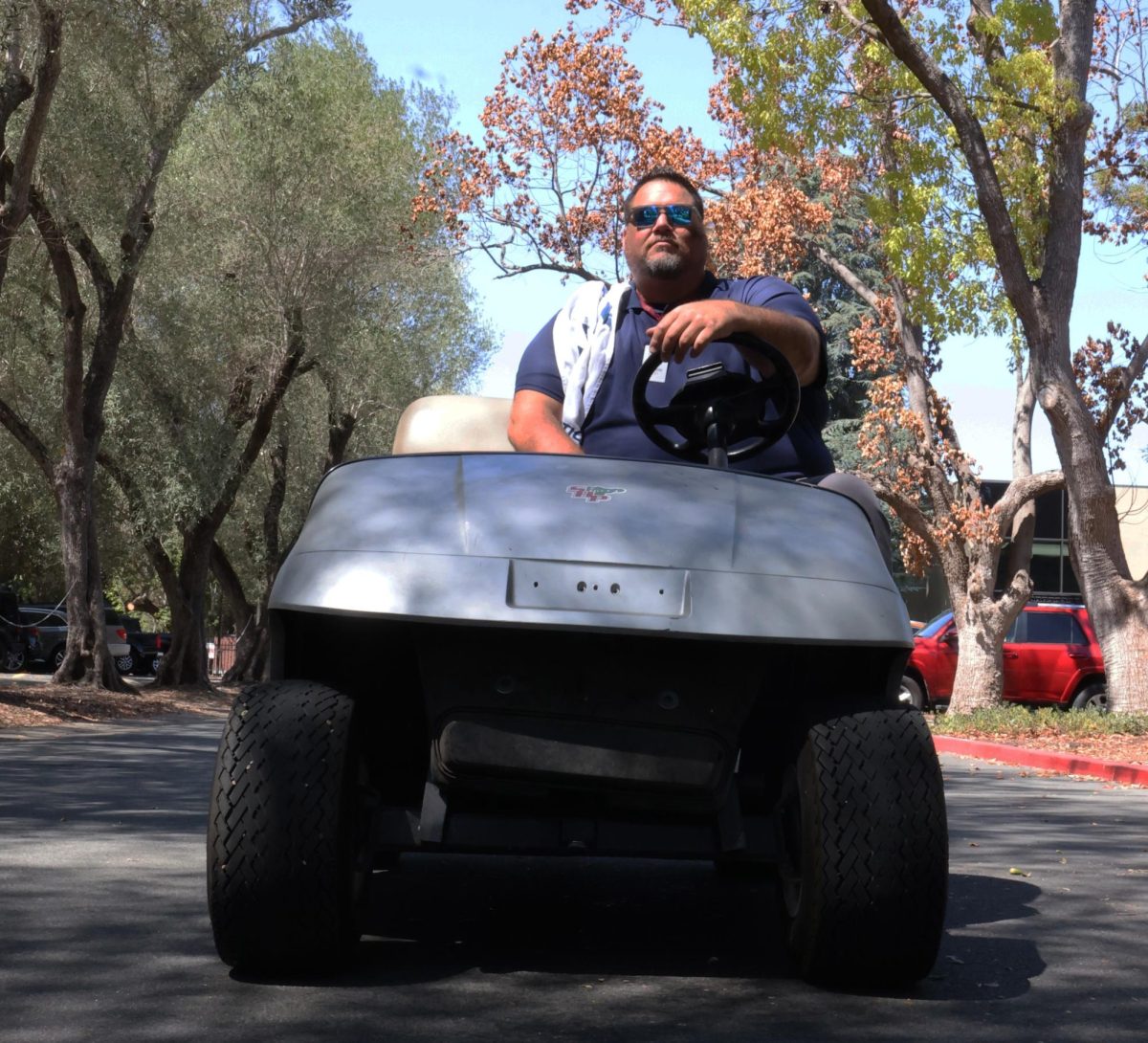SHP’s Director of School and Personal Counseling, Ms. Laura Stoll, prescribes that students ages 13-18 need 8-10 hours of sleep to maintain a healthy body and mind. However, according to the CDC, around “7 out of 10 high schoolers [in the United States] don’t get enough sleep.” A recent survey sent to the student body has revealed that SHP is also subject to this figure. The survey was developed by the Health and Wellness Ambassadors–a health leadership group headed by the Director of Health and Wellness, Ms. Monika Nagy–and received more than 300 responses. On an average weeknight, 36.4% of students reported sleeping for 7 hours, 18.8% for 6 hours, and 11.3% reported receiving 5 or fewer hours of sleep. Assuming that the survey yielded a representative sample, this would mean that 66.5% or nearly 7 out of 10 SHP students do not get the recommended 8 hours of sleep per night. Additionally, 27.4% of respondents reported feeling reasonably concerned about their lack of sleep, while 10.1 % reported feeling in serious need of more sleep. This is certainly understandable since a majority of students (54.6%) said that they struggle to stay awake in class. On the flip side, some students are on track with their sleep hygiene, as 32.4% of respondents reported receiving 8 or more hours of sleep on weekdays. Still, students on campus are objectively not receiving enough sleep, and the explanation behind this growing issue is multifaceted.
In an interview, Delores Moore ‘25 expressed that procrastination is the main factor negatively impacting her sleep: “The main thing for me is probably procrastination. I feel like I could have slept earlier had I not wasted a lot of time… scrolling through TikTok or Instagram reels. Even just like YouTube videos.” Our Personal Counselor, Ms. Brooke Clark, echoes Delores Moore’s observation, saying that her “biggest tip for students who are finding it hard to get enough sleep would be to reevaluate your priorities. Make sure that you are using as much daytime as you can to get things done, so you don’t have to stay up late working on projects, studying for class, or doing homework. Regulate use of devices so that your time spent on social media or streaming shows doesn’t cut into your sleep.” Stoll further reiterates Clark’s caution about device usage, saying, “our time immersed in media can get in the way of sleep either literally, because we stay up late and take so much time doing these things, or we interrupt our body’s ability to trigger melatonin production with the blue light from screens.” In addition to screens and procrastination, caffeine is another eminent cause of sleep deprivation. Delores Moore describes her caffeine usage: “Every day, I go to the cafeteria, and I pick up a V8 or Yerba Mate sometimes twice a day, and if I don’t, the day is horrible. The day is not a good day if I don’t have a V8.” Delores feels energized because, according to the Better Health Channel, “Caffeine is a stimulant, which means it increases activity in your brain and nervous system…[and] increases the circulation of chemicals such as cortisol and adrenaline in the body.” However, in Delores Moore’s case, it is hard to stay energized throughout the day without caffeine because her body has become reliant on its stimulation. Ironically, though, sleep deprivation may occur from caffeine stimulation, triggering further caffeine usage during the day to compensate for the loss of sleep. This generates a vicious cycle, and the longer the cycle continues, the more caffeine the consumer requires to feel energized. In the long term, this can be incredibly dangerous as–according to Medline Plus, a U.S. government-owned website–excessive caffeine intake can result in heartburn, bone thinning (osteoporosis), headaches, insomnia, dizziness, and anxiety. This is a cause of concern at SHP because Delores is not an outlier in terms of her caffeine consumption. The aforementioned school-wide survey identified that 13.7% of student respondents consumed caffeine frequently (every day) while 16.4% consumed it pretty regularly (around once a week). Additionally, the SHP cafeteria offers caffeinated drinks–Yerba Mate and V8 energy–and despite there being no federal guidelines about caffeine usage for kids, according to the CDC, “The American Academy of Pediatrics states that caffeine and other stimulant substances contained in energy drinks have no place in the diet of children and adolescents.” Another explanation for the declining amount of sleep of SHP students is sleep disorders, including, most commonly, insomnia, narcolepsy (excessive daytime sleepiness), restless legs syndrome (RLS), and sleep apnea. Kingsley Gillett ’27 suffers from insomnia, which the CDC claims “is characterized by an inability to initiate or maintain sleep.” Based on his personal experience, he says that insomnia “Basically means that you can’t fall asleep no matter what you try.” As a result, he expressed that it is hard for him to “get good sleep, do extracurriculars, and get good grades [simultaneously].” Furthermore, Nagy has noticed that “there is a narrative from many students that in order to be successful or get into college, they need to do everything. For some students, this is the real reason that they are not able to fit sleep into the equation. Between that extra honors or AP course, multiple sports teams at the same time, year-round extracurriculars, volunteering, and more, the hours keep adding up. Those 8-10 hours of sleep are frequently seen as the least important thing on the list, night after night.” Many students have an unhealthy and inflated idea of success that manifests in their decision to take on more activities than they can handle. As a result, students don’t have enough time to sleep or manage a healthy lifestyle. A byproduct of this overexertion is stress. Nagy said, “Stress can really impact sleep. Rumination, worrying, or that neverending list of things in our minds can sometimes make it challenging for people to fall asleep or stay asleep.” So, taking on more tasks than a student can handle not only reduces the time available for sleep but increases feelings of stress, both of which are factors that contribute to sleep deprivation.
Sleep deprivation can have a range of consequences, from light sluggishness to a compromised immune system or increased risk of accident or injury. According to the Better Health Channel, common symptoms of sleep deprivation include clumsiness, which may result in physical injuries, concentration difficulties, moodiness and aggression, depression, or memory impairment. These symptoms are strongly reflected in the Health and Wellness Ambassadors’ survey. 64.4% of students reported feelings of challenges with mood regulation when they are short on sleep, 82.3% reported physical tiredness or sluggishness, and 72.3% experienced difficulty remembering or learning. In terms of physical pain, 34% of students experience headaches, and 13.2% reported muscle tension. Delores Moore is no stranger to these physical pains on days when she doesn’t sleep enough: “Normally, my body will hurt a lot. And then I don’t want to get out of bed.” Some students even feel like they get sick more often (27.4%) when they don’t get enough sleep, while others report feeling more clumsy and consequently more likely to experience accidents or injuries (38.6%). In the long term, sleep deprivation can lead to “several problems including decreased brain development, learning problems and more frequent negative emotions. The Children’s Hospital of Colorado reports that it can also contribute to weight management problems, growth issues, and increased frequency of illnesses.”
While many students at school fail to regularly get a healthy amount of sleep, therefore experiencing physical and mental repercussions, SHP has staff specifically trained to help students achieve better sleep and an overall healthier lifestyle. Students can seek out the health and wellness teachers Nagy or Mr. Brian Heredia, their assigned school counselor, or Clark. Additionally, Nagy recommends that students see their classroom teachers as a potential resource. For example, “If you are working diligently, and you get to 10:00 or 11:00, and you’re not finished or you’re exhausted, reach out directly to your teachers and school counselors. If you are having difficulty managing your time or keeping track of assignments & deadlines, that’s another great moment to connect with your school counselor to work on some tips for greater efficiency and support.” After all, “Your teachers want to support you…they care for your wellbeing.”


